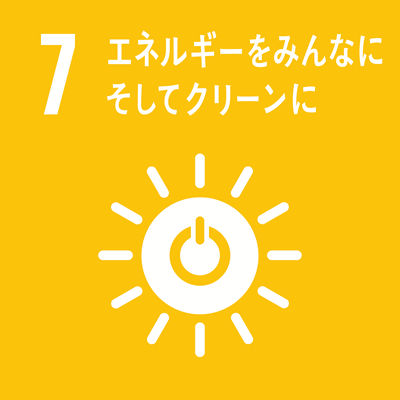シラバス表示
シラバスの詳細な内容を表示します。
→ 閉じる(シラバスの一覧にもどる)
科目の基本情報
| 開講年度 | 2022 年度 | |
|---|---|---|
| 開講区分 | 工学研究科(博士前期課程)機械工学専攻 | |
| 領域 | 主領域 : B | |
| 受講対象学生 |
大学院(修士課程・博士前期課程・専門職学位課程) : 1年次, 2年次 |
|
| 選択・必修 | ||
| 授業科目名 | 応用熱工学特論 | |
| おうようねつこうがくとくろん | ||
| Applied Thermal Engineering | ||
| 単位数 | 2 単位 | |
| ナンバリングコード | EN-ENGY-5
|
|
| 開放科目 | 非開放科目 | |
| 開講学期 |
前期 |
|
| 開講時間 |
火曜日 3, 4時限 |
|
| 授業形態 |
対面授業 * 状況により変更される可能性があるので定期的に確認して下さい
「オンライン授業」・・・オンライン会議ツール等を利用して実施する同時双方向型の授業 |
|
| 開講場所 | ||
| 担当教員 | 〇廣田真史(工学研究科機械工学専攻),浅野秀夫(機械工学専攻非常勤講師) | |
| 〇HIROTA, Masafumi,ASANO, Hideo | ||
| 実務経験のある教員 | 浅野秀夫.自動車部品メーカーにおいて自動車用空調システムの研究開発に従事していた.本講義で取り扱う乱流伝熱,気液二相流のシミュレーション技術,それを応用した設計開発に精通している. | |
| SDGsの目標 |
|
|
| 連絡事項 | * 状況により変更される可能性があるので定期的に確認して下さい |
|
学修の目的と方法
| 授業の概要 | 本講義では,エネルギー機器や環境機器において多くみられる相変化を伴う伝熱,単相流において複雑なせん断乱流における輸送現象に関する実験的手法や理論について学ぶ.また,こうした現象を有効に利用する手段であるヒートポンプシステムの理論と実際,および熱交換器の理論と実際について,最新の内容を講義する. (Course description and outline) In this lecture, we will study experimental methods and theories on heat transfer with phase change, which is common in energy and environmental equipment, and transport phenomena in complex shear turbulence in single-phase flow. In addition, lectures will be given on the latest content on the theory and practice of heat pump systems and the theory and practice of heat exchangers. |
|---|---|
| 学修の目的 | 気液二相流の流動特性,液体の沸騰熱伝達,単相流における乱流輸送現象に関する基礎的理論を理解し,実際の熱機器とくにヒートポンプの効率計算や熱交換器の設計にある程度応用できるようになる. (Learning objectives) Understanding basic theories on flow characteristics of gas-liquid two-phase flow, heat transfer of liquid boiling, and turbulent transport phenomena in single-phase flow. Application to the calculation of efficiency of actual heat equipment, especially heat pumps, and the design of heat exchangers. |
| 学修の到達目標 | ・液体と気体間の相変化を伴う熱伝達における熱伝達率を算出することが出来る. ・乱流輸送現象に関する測定手法の原理を学ぶとともに,理論についても原理を理解しモデルの構成を理解出来る. ・熱交換器の基本設計に関する計算手法を身につけることが出来る. ・ヒートポンプの効率を計算し,省エネ性について考察することが出来る. (Achievement) ・ The heat transfer coefficient in the heat transfer involving the phase change between liquid and gas can be calculated. ・ Besides learning the principle of the measurement method for the turbulent transport phenomena, you can also understand the principle of the turbulence models. ・ Learn the calculation method for the basic design of the heat exchanger. ・ Calculate heat pump efficiency and consider energy saving. |
| ディプロマ・ポリシー |
|
| 成績評価方法と基準 | レポート100%.3回以上欠席した場合には単位を与えない. (Grading policies and criteria) Report 100%. If you miss three or more times, no credit will be given. |
| 授業の方法 | 講義 |
| 授業の特徴 |
キャリア教育の要素を加えた授業 |
| 授業改善の工夫 | 最先端の話題や企業における実際の設計への応用例についても講義する. (Ideas for improving classes) Lectures will also be given on cutting-edge topics and examples of application to actual design in companies. |
| 教科書 | 特に指定しない.板書とプリントによる講義を行う. (Text books) Not specified. Lectures on slides and prints. |
| 参考書 | |
| オフィスアワー | 授業終了後など,質問などに関しては随時受け付ける. 機械棟3階廣田教授室. (Office hour) Questions are accepted at any time, such as after class. Prof. Hirota's room on the 3rd floor of the mechanical engineering building. |
| 受講要件 | 特にない. (Prerequisites) Not particularly |
| 予め履修が望ましい科目 | 熱工学,流体工学,エネルギー変換工学,輸送現象論. (Courses encouraged to take in advance) Thermal engineering, fluid engineering, energy conversion engineering, transport phenomenology |
| 発展科目 | |
| その他 |
英語対応授業である。 |
授業計画
| MoodleのコースURL |
|---|
| キーワード | 伝熱,相変化,蒸気線図,沸騰,凝縮,気液二相流,強制対流,乱流熱物質輸送,乱流モデル,熱交換器,ヒートポンプ |
|---|---|
| Key Word(s) | Heat transfer, Phase change, Vapor diagram, Boiling, Condensation, Gas-liquid flow, Forced convection heat transfer, Turbulent heat and mass transfer, Turbulent model, Heat exchanger, Heat pump |
| 学修内容 | 講義の初回に学習内容を提示する. 第1回~第5回 気液二相流と相変化を伴う伝熱 第6回~第8回 乱流輸送現象の実験手法とモデル化 第9回~第10回 CFDを用いた熱機器の開発 第11回~第13回 ヒートポンプシステム 第14回~第16回 熱交換器 事前学修の時間:90分 事後学修の時間:150分 (Course contents) The learning content is presented at the beginning of the lecture. 1st to 5th: Heat transfer with gas-liquid two-phase flow and phase change 6th to 8th: Experimental methods and modeling of turbulent transport phenomena 9th to 10th: Development of thermal equipment using CFD 11th to 13th: Heat pump system 14th to 15th: Heat exchanger |
| 事前・事後学修の内容 | 熱力学,流体力学,伝熱工学,エネルギー変換工学の履修を前提とするため,授業を受ける前に十分復習しておいてほしい. 各テーマごとに演習を実施し,レポートを課す. (Contents for pre and post studies) It is assumed that students will study thermodynamics, fluid dynamics, heat transfer engineering, and energy conversion engineering. Exercises are conducted for each theme and reports are imposed. |
| 事前学修の時間:90分/回 事後学修の時間:150分/回 |

